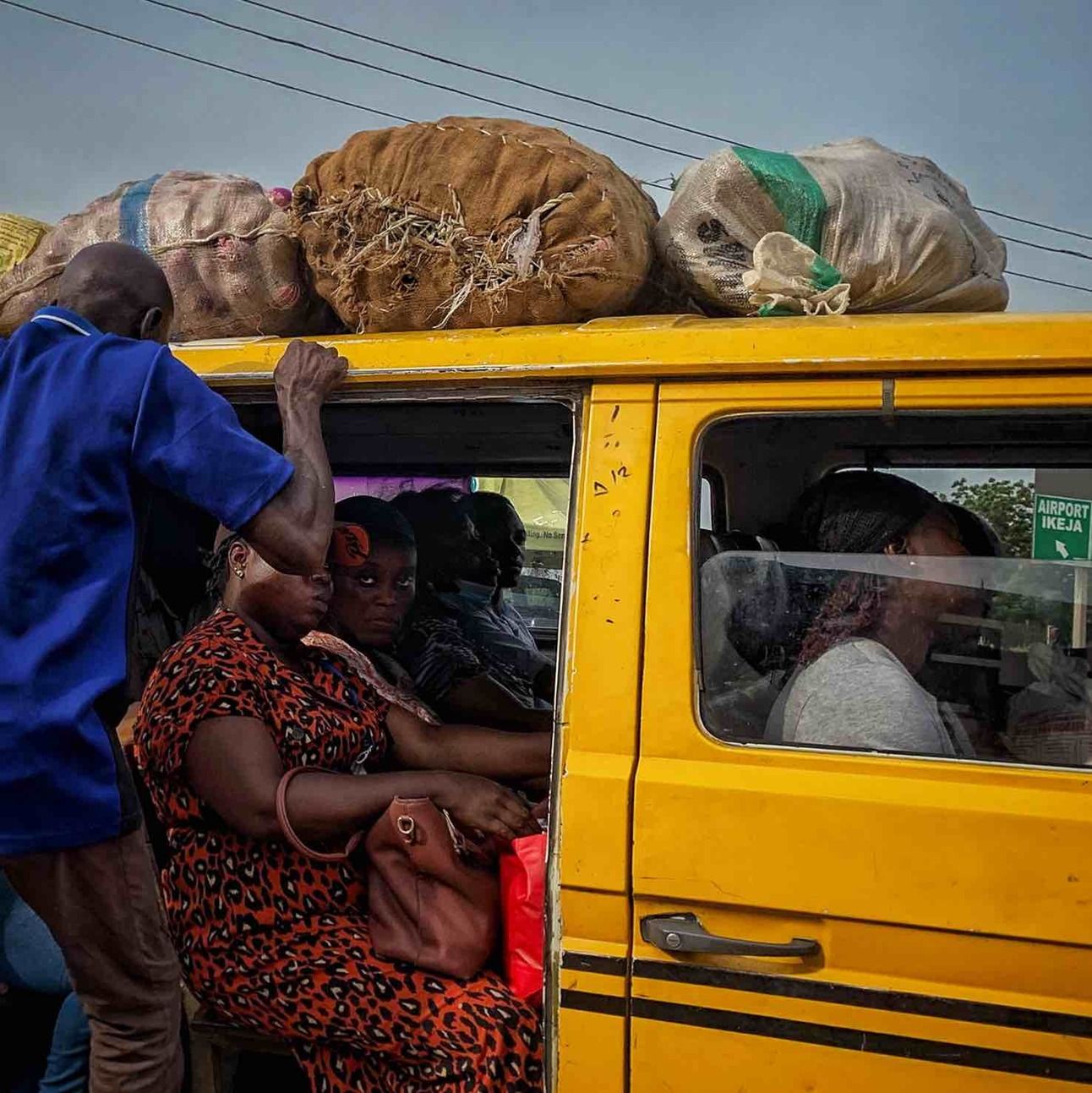This Thursday edition of 234Digest makes up for our missed Wednesday issue, bringing you the latest updates on Nigeria's economic and energy landscape. From the Central Bank's efforts to stabilize the naira to bold oil sector reforms and sustainability initiatives, we explore the key developments shaping the nation. Our Photo of the Day offers a nostalgic glimpse into Lagos' iconic Danfo culture during rush hour—a symbol of resilience and resourcefulness. Let’s dive in.
—Samuel Okocha, Editor & Curator, 234Digest
Word for word:
"CBN remains committed to a fully functional foreign exchange market and will continue to provide liquidity when necessary to manage price volatility."
Today’s briefs
CBN extends dollar access as naira strengthens
Nigeria's central bank has extended its dollar-access programme for foreign exchange bureaus until May 30th. The initiative allows bureaux de change (BDCs) to purchase $25,000 weekly from the official currency market. Since its introduction in December, the program has contributed to a 3% appreciation of the naira, now trading at ₦1,498.5 per dollar.
The move underscores the CBN’s commitment to stabilizing foreign exchange markets while narrowing the gap between official and parallel rates. As liquidity improves, attention shifts to structural reforms in Nigeria’s oil sector aimed at boosting domestic production.
NUPRC announces 2025 licensing round for fallow fields
The Nigerian Upstream Petroleum Regulatory Commission (NUPRC) has unveiled plans for its 2025 licensing round, focusing on unlocking fallow assets to enhance energy production. The initiative aims to attract foreign direct investment and prioritize natural gas development in alignment with Nigeria’s UN Sustainable Development Goals.
Engr. Gbenga Komolafe, NUPRC’s Chief Executive Officer, emphasized that this round builds on lessons from previous exercises and will address undeveloped fields critical to boosting output and job creation. While these efforts aim to revitalize production capacity, challenges like pipeline vandalism and oil theft persist.
Shell spill sparks cleanup efforts as Ogoni oil talks resume
Shell has reported an oil spill near Port Harcourt caused by an overflow during flushing operations. Meanwhile, discussions are underway with local communities in Ogoniland to restart oil production after Shell’s $2.4 billion sale of its onshore business last week.
The government views restarting production in Ogoniland—halted since 1993 due to environmental protests—as a potential boost for foreign exchange earnings. However, ensuring robust environmental safeguards remains critical as negotiations progress.
As oil sector reforms take shape, fiscal policies are also evolving to address Nigeria’s broader economic challenges.
NESG launches 2025 Macroeconomic Outlook Report
The Nigerian Economic Summit Group (NESG) has released its 2025 Macroeconomic Outlook Report, themed "Stabilisation in Transition: Rethinking Reform Strategies for 2025 and Beyond." The report highlights Nigeria's progress in economic reforms while emphasizing persistent challenges such as inflationary pressures and infrastructure deficits.
NESG projects GDP growth of up to 5.5% if stability-focused reforms continue but warns that inefficient policy implementation could limit growth to as low as 2.7%. The report underscores the need for cohesive monetary and fiscal strategies to sustain reform momentum.
While macroeconomic reforms dominate discussions, private sector initiatives are tackling sustainability challenges head-on.
Coca-Cola opens plastics recycling hub in Lagos
Coca-Cola Nigeria and its bottler, Nigerian Bottling Company (NBC), have inaugurated a new packaging collection hub in Lagos capable of processing 13,000 tonnes of plastic bottles annually. This initiative aligns with Coca-Cola’s global sustainability goals of using 35-40% recycled materials in packaging by 2030.
“This hub will serve as a critical center for collecting and recycling PET plastics,” said Lagos State Governor Babajide Sanwo-Olu at the launch event. The facility aims to reduce plastic pollution while fostering cleaner communities and supporting Nigeria’s circular economy.
Quote of the day: "The real voyage of discovery consists not in seeking new landscapes, but having new eyes."—Marcel Proust
Photo of the day

Lagos Rush Hour Symphony: A yellow Danfo bus navigates Lagos' bustling streets during peak hour in this throwback image from 2022. With bagged food items balanced on its roof and passengers packed tightly inside, this snapshot captures the city's relentless energy—a testament to Lagos' vibrant transportation culture where every journey is an intricate dance of survival and hustle. Photographer: Samuel Okocha
And that's a wrap for this special Thursday edition of 234Digest. As we've explored today, Nigeria's story is one of continuous transformation—from currency stabilization efforts to evolving energy policies and sustainability initiatives.
This week’s edition highlights Nigeria's journey through economic reforms, energy sector transformations, and sustainability initiatives—all underscored by resilience and innovation. Until the next dispatch on Sunday, stay connected and blessed up as we continue exploring the pulse of Nigeria's economy and culture.

